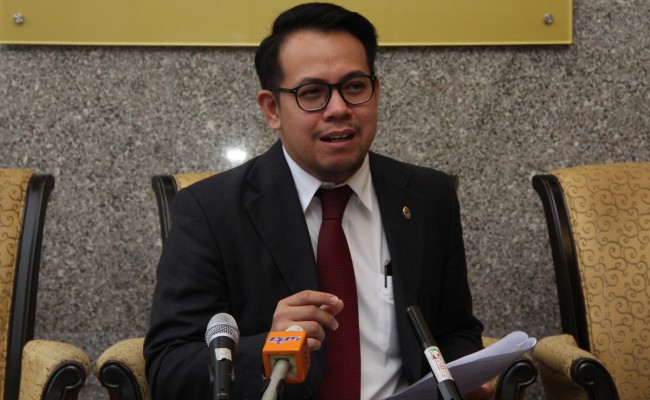 The proposal to introduce an additional two levels to the current three-tier Syariah court system in order to match the jurisdiction of the Federal court has come under fire by DAP who believe the move would “make a mockery” of the concurrent legal system.
The proposal to introduce an additional two levels to the current three-tier Syariah court system in order to match the jurisdiction of the Federal court has come under fire by DAP who believe the move would “make a mockery” of the concurrent legal system.
Responding to the announcement by Minister in the Prime Minister’s Department, Jamil Khir Baharom, Bukit Mertajam MP Steven Sim said that this would further complicate the “already confused legal system”.
“On one hand, the Federal Constitution clearly upholds the rights of Muslims to be governed by Syariah law although the understanding of Syariah as provided by the Constitution is limited to those under List II in the Ninth Schedule of the Constitution and then deriving from the List, those gazetted by state authorities (i.e. the principle of the exclusivity of jurisdiction of the Syariah courts)”.
“On the other hand, Constitution also upholds the rights of both Muslims and non-Muslims alike to appeal to the highest courts in the land, i.e. the Court of Appeal and the Federal Court,” said Sim in a statement today.
Sim, who said that the move went against the Federal Constitution, opined that even the current dual law system and a stipulated exclusivity of the Syariah courts presented confusion.
“In the current system, the loop-sidedness of justice is evident; non-Muslims, even though not professing submission to Syariah laws, are subjected to the Syariah court in some situations (notably cases of child custody).”
He cited the case of M. Indira Ghandi where the police refused to act on the decision by the civil court due to a conflicting decision from the Syariah court.
In that case, the Ipoh High Court had decided that custodial matters relating to divorce should be decided by civil courts in cases where the marriage was contracted under civil law, regardless of the fact that one spouse converted to Islam later. The court also held that the converting spouse could not seek a custodial order in the Syariah court in contravention of this.
Sim added that the creation of Syariah superior courts also risked paving the way for the expansion of religious laws in the country, where the court’s decisions become binding without any further recourse.
“Is this not “hudud-isation” in another name?” he asked.
Sim said that the move would aggravate the existing confusions in the legal system, while making a “mockery of both the civil-syariah legal systems and the concept of justice” in the country.
Following the Court of Appeal’s decision recently to nullify a Syariah law ban on cross dressing, Kedah UMNO Youth Movement chief Saiful Hazizi Zainal Abidin had emphasized the importance of a Syariah court equivalent to the Federal court.
The appellate court panel in that case had deemed the Syariah law ban on transgenders as depriving the appellants of their dignity and failing to recognize men diagnosed with gender identity disorder. Three Muslim men were acquitted of the “crime” of cross-dressing based on a Syariah enactment prohibition.
The Court of Appeal had then ruled that the enactment was unconstitutional as the state law provided for the fundamental liberties which include personal liberty, equality, freedom of movement and freedom of expression. It emphasised that while Syariah courts are empowered to make decisions, these should not contravene the Federal Constitution which is the paramount law of the land.
These unresolved problems in what Sim called a “highly partisan time”, spurred the DAP MP to criticize the ruling party’s plan, calling it gravely irresponsible and that it must be abolished. -The Rocket



